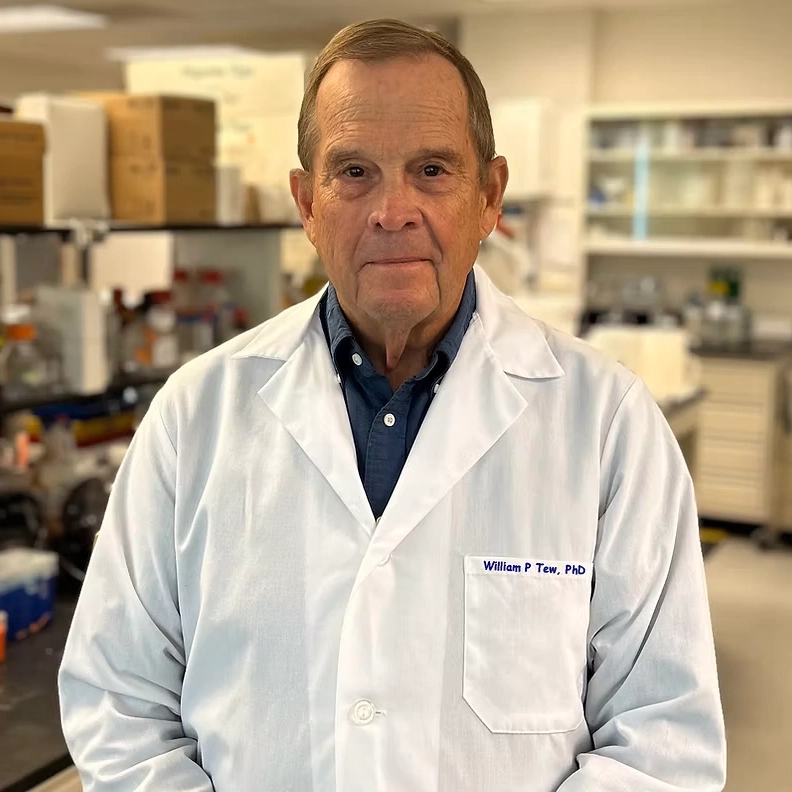
BIONEEX STORY WITH THE CEO AND CHAIRMAN OF THE BOARD OF GLYCOMIRA THERAPEUTICS WILLIAM P. TEW, PhD AND CFO KENNETH R. NORTH

BIONEEX STORY WITH THE CEO AND CHAIRMAN OF THE BOARD OF GLYCOMIRA THERAPEUTICS WILLIAM P. TEW, PhD AND CFO KENNETH R. NORTH
Founded in 2010 with technology licensed from the University of Utah, GlycoMira Therapeutics has developed a promising first-in-class anti-tumor multimodal immune modulator that it says could become an important addition to the arsenal of oncology drugs.
“Immune modulation or checkpoint inhibitors have become powerful tools, but they're not without some shortcomings,” says William Tew, Ph.D., CEO and chairman of the Board at GlycoMira. “There is potential for serious side effects including life-threatening autoimmune reactions. In addition, they're obscenely expensive.”
Originally charged with developing a heparin mimic that would have strong anti-inflammatory properties without heparin’s anticoagulant activity, the company created a novel molecule that not only has very pronounced anti-inflammatory properties, but also anti-tumor activity.
GlycoMira’s clinical candidate, GM-1111, is a small molecule that is not only very inexpensive to make, but also highly stable. “It inhibits several processes in the tumor microenvironment to enhance solid tumor treatments, while also mitigating adverse effects arising from radiation. On the tumor side, it blocks CXCL12 binding, it blocks RAGE, and it blocks VEGF. GM-1111 is truly a multimodal immune modulator as opposed to most of the current single-target checkpoint inhibitors. In addition, it also blocks the cytokine storm that damages healthy tissue as a result of radiation exposure.”
In preclinical studies, GlycoMira planted human pharyngeal sarcoma cell lines in mice and then treated the mice with GM-1111 alone and with GM-1111 combined with radiation. “Much to our surprise, GM-1111 alone was as good as radiation at reducing tumor growth, and in combination with radiation, it almost completely eliminated the tumor,” Tew said.
The Company repeated the study in another laboratory with a different human pharyngeal sarcoma cell line and got the same result. Additionally, in ongoing studies with organoid models derived from different human cancers, GM-1111 alone inhibited tumor growth and cancer stem cell proliferation.
In other studies, GlycoMira found that GM-1111 mitigated oral mucositis in mice exposed to fractional radiation, which is a huge problem in the treatment of head and neck cancers. “Mucositis is a serious side effect with very limited treatment options, oftentimes leading to feeding tubes, to narcotics, and in some cases, unfortunately, leading to cessation in treatment,” Tew said. “It's not just a trivial effect of the treatment. No drug has been approved for the mitigation of oral mucositis.”
GlycoMira’s clinical strategy is to position GM-1111 as a combination therapy with the current standard of care for the treatment of head and neck cancers. The company’s IND, submitted in January 2025 to the U.S. Food and Drug Administration’s CDER Oncology division, has been approved for Phase 1a clinical investigation.
“The Phase 1a study will be a small open-label trial,” says Tew, “which will enroll patients with stage four solid tumors to establish safety and dosing regimens for Phase 1b clinical investigations. Upon completion of 1a, Phase 1b studies will involve head and neck cancer patients receiving radiation and/or chemotherapy five days a week for five to seven weeks. GM-1111 can be easily administered by subcutaneous injection during the patient’s course of treatment.
The Phase 1 clinical trials will be conducted at the Virginia Commonwealth University- Massey Comprehensive Cancer Center in Richmond, Virginia. “Some of their researchers have done some really nice preclinical work demonstrating that GM-1111’s effects were not limited to head and neck cancers, but it was also effective in reducing tumors in a number of different cancer organoid models, including breast, lung, renal and colorectal cancers,” Tew says.
Financed so far with $10 million in NIH SBIR grants, the company is now in the process of seeking $2.5 million to finance the first phase 1a study, which it plans to start by the end of the first half of 2025.
GlycoMira recently joined the Bioneex AI-powered matchmaking platform to access investors and companies for potential partnering opportunities.
“We loaded all of our information into Bioneex’s system and so far, we have seven connections that could potentially turn out to be an opportunity for us,” said GlycoMira CFO Ken North. “What I like about Bioneex is that it's very targeted, and it is using AI to match up funders and acquirers and strategic partners, all of the above with companies like GlycoMira, and is just a perfect fit.”
CEO Tew is optimistic about the potential for GM-1111 being added to the oncology therapeutic arsenal. “This is indeed a first-in-class antitumor compound that is not a biologic,” he says. “So far in preclinical animal studies, we've seen no evidence of any significant adverse effects. GM-1111 is inexpensive to manufacture, it's very stable, and I think it could eventually have wide application in a number of different cancers as an adjuvant to the current standard of care.”